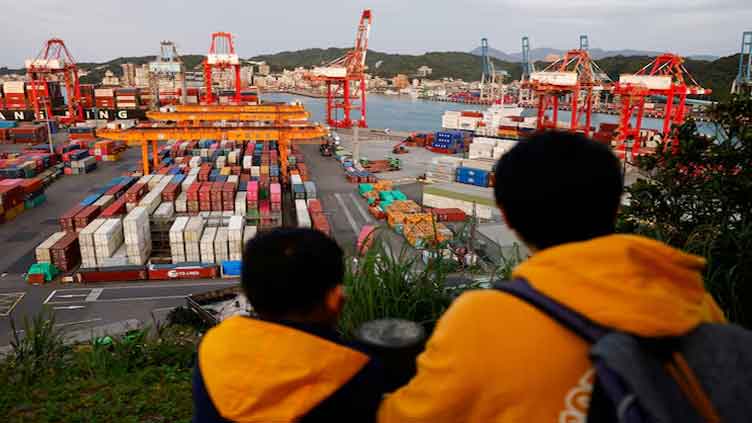Taiwan eyes zero tariffs with US, pledges more investment

Business
Taiwan eyes zero tariffs with US, pledges more investment
TAIPEI (Reuters) - Taiwan's President Lai Ching-te on Sunday offered zero tariffs as the basis for talks with the U.S., pledging to remove trade barriers rather than imposing reciprocal measures and saying Taiwanese companies will raise their U.S. investments.
President Donald Trump announced across-the-board import tariffs on Wednesday, with much higher duties for dozens of trading partners, including Taiwan, which runs a large trade surplus with the U.S. and faces a 32% duty on its products.
The U.S. tariffs, however, do not apply to semiconductors, a major Taiwanese export.
In a video message released by his office after meeting executives from small and medium-sized companies at his residence, Lai said given Taiwan's dependence on trade the economy would inevitably have a hard time dealing with the tariffs, but that he thought the impact could be minimised.
"Tariff negotiations can start with 'zero tariffs' between Taiwan and the United States, with reference to the U.S.-Canada-Mexico free trade agreement," Lai said.
Taiwan has no plans to take tariff retaliation, and there will be no change in Taiwanese companies' investment commitments to the United States as long as they are in Taiwan's interest, he added in comments provided by his office.
Taiwan's cabinet is considering what large-scale agricultural, industrial and energy purchases to make from the United States, while the defence ministry has already put forward its weapons purchase plans, he added.
"All purchases will be actively pursued," Lai said.
Non-tariff trade barriers are an indicator for the U.S. to assess the fairness of trade, and Taiwan will proactively resolve non-tariff trade barriers that have existed for many years to make trade negotiations with the U.S. smoother, he added.
The U.S. is Taiwan's most important international backer and main source of arms, despite the lack of formal diplomatic ties.
Taiwan has faced stepped-up military and political pressure from its giant neighbour China, which views the democratically governed island as Chinese territory, despite the objections of the government in Taipei.
Shortly before Trump's tariff announcement, China announced the end of its latest round of war games around Taiwan.


